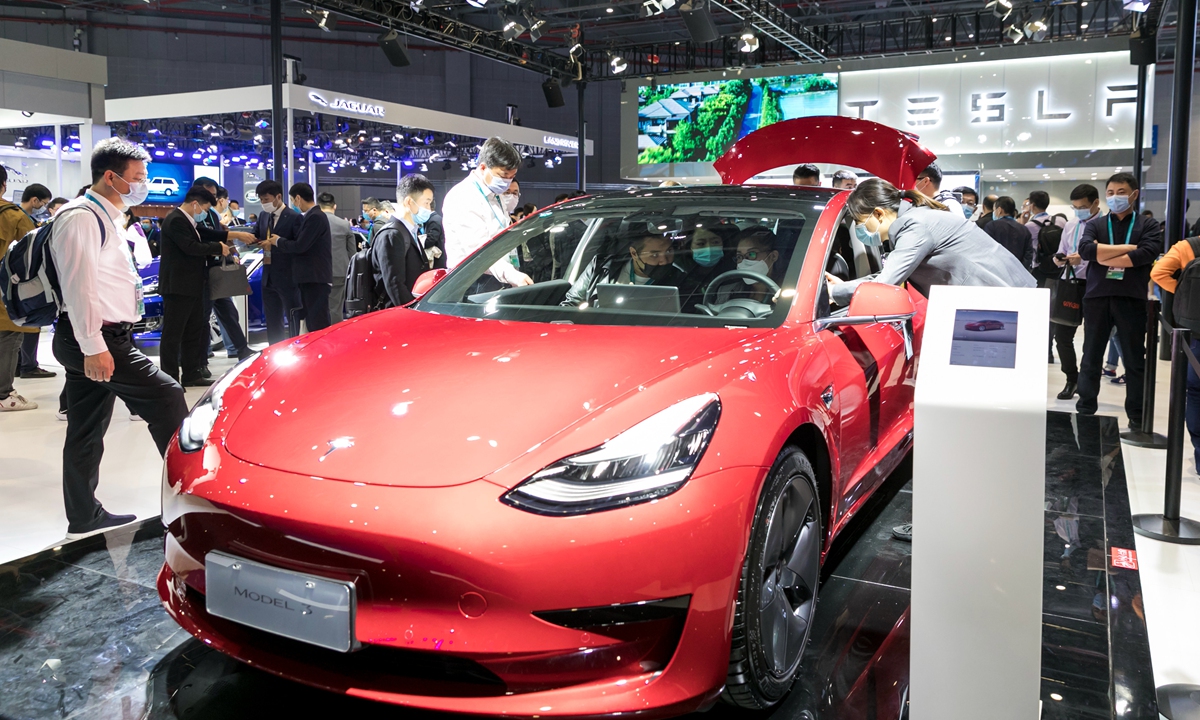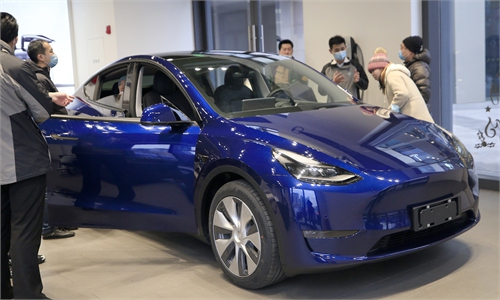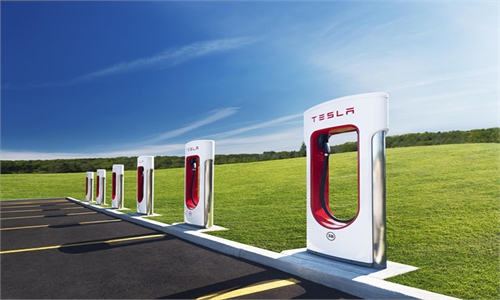
A Tesla EV model seen in Shanghai in November 2020 Photos: cnsphoto
Fresh off a massive nosedive, Tesla's stock price posted its sharpest one-day gain in a year on Wednesday, rising nearly 20 percent and rebounding amid a recent cascade of sell-offs. Behind the slump, potential reasons offered by observers including growing market competition, shortage of auto microchips, and even the turmoil bitcoin market which Tesla recently set foot in.
Regardless of the performance of the stock price, Tesla, a rising US corporate heavyweight, has seen its development in China became a major anchor of its meteoric growth, as well as a driven force setting its heavyweight industrial position. Right before the latest share price jump, data from an industrial report revealed that Tesla recorded a 470-percent year-on-year electric car sales surge in China in February.
Though China and the US have experienced some difficulty in their bilateral relationship in the past years, business growth of American companies in China has not seen much impact. Instead, the still-growing Chinese market has offered foreign businesses a stable and promising space to grow, against the backdrop of the once-in-a-century COVID-19 pandemic.
Tesla has, particularly, gained a lot from Chinese market. Its electric car sales in China more than doubled in 2020 despite the fallout of the coronavirus. The company's sales here accounted for 21 percent of its total car sales last year, growing 9 percentage points just in one year. With huge potential and rosy prospects, the significance of the Chinese market for Tesla is evident.
Also, Tesla's business in China is accelerated by very preferential policies here, although it could inevitably encounter fierce competition for China's domestic electric vehicle brands. The local government of Shanghai has granted a beneficial corporate income tax rate of 15 percent to eligible foreign-funded enterprises, including Tesla.
Chinese consumers, in the largest electric vehicle market, have held a fair favorability toward the US car brand. Under such circumstances, it appears increasingly obvious that Tesla has its future closely tied to this market.
US President Joe Biden, who took office on January 20, has emphasized his intention to pursue "extreme competition" with China. But competition, fundamentally, should be conducted under fair and just environment.
Just like Tesla which could enjoy a wide and fair growing space in China, the US should also strive to offer an inclusive and equitable environment for foreign firms, including Chinese companies.
It's a two-way beneficial approach. Not only that it's significant for foreign businesses, their growth and vibrancy will promote the recovery of the American economy, and help the US maintain its competitiveness in the post-pandemic era.
China has repeated its commitment to enhance the opening-up policy, with stepping up efforts to cultivate a market-oriented, legal and internationalized business environment for all foreign businesses.
We hope that the US, as the world's largest economy, can uphold an inclusive, open, equitable and mutual-beneficial mindset to shore up cooperation which will not only benefit both nations but will also be beneficial for the global economy's revival.



